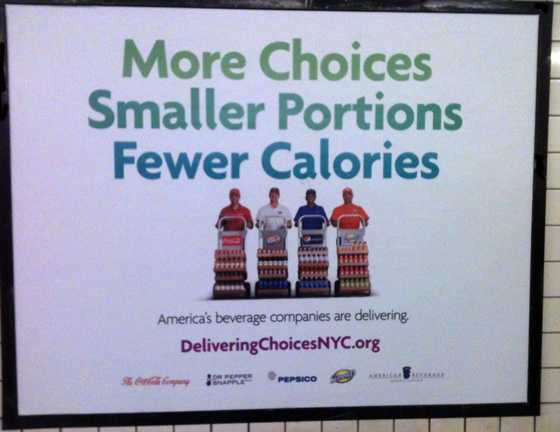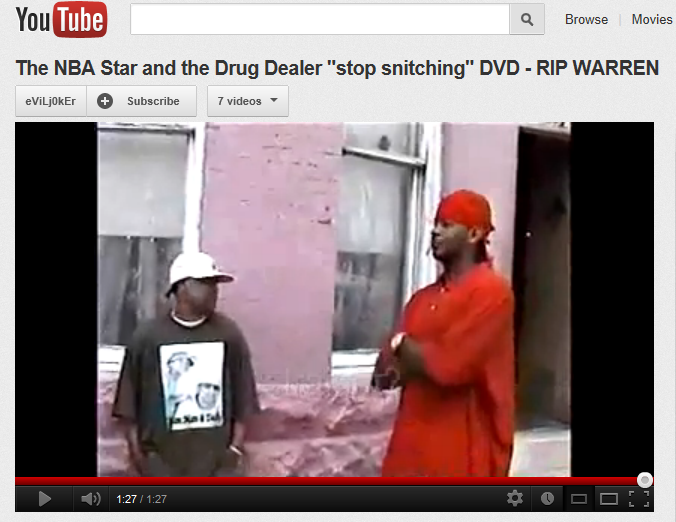BLOOMBERG’S “NANNY STATE” AND DISNEY’S HEALTH INITIATIVE
By Anthony F. Iliakostas
On Wednesday, May 30, 2012, New York City Mayor Michael Bloomberg announced that he would enforce a ban on sugar-based beverages that are more than 16 fluid ounces. The proposal was submitted to the New York City health board on June 12, 2012, and the health board conducted public comment hearings on July 24th. News of the soda ban has created a flurry of criticism. Two days after Mayor Bloomberg proposed the ban, the Center for Consumer Freedom printed a full-page ad in the New York Times mocking Mayor Bloomberg as “Nanny Bloomberg.”
Along similar lines, the American Beverage Association launched a TV and print ad campaign advocating “consumer choice” in the beverages consumers drink.

The mayor’s initiative has not been without allies of its own, however. Support has come from public figures ranging from First Lady Michelle Obama to former NYC mayor Ed Koch, and Cambridge, Massachusetts mayor Henrietta Davis, who has considered a similar ban.
On a parallel, yet curiously less publicized front, the Walt Disney Company also has been actively promoting pro-health initiatives for youth. On June 4th, Disney CEO Robert Iger teamed up with First Lady Michelle Obama’s “Let’s Move” initiative in Washington D.C. to announce new restrictions on the number of junk food advertisements that will be carried on Disney TV and radio stations. Disney will be using a “Mickey Check” system
to indicate products that Disney approves of as “healthy” and “nutritious” for young children. Disney company officials say that their goal is to reduce childhood obesity, and CEO Iger asserts that this is “smart business.” But if this is such a smart business move, why has the Disney initiative been given such limited public relations exposure?

According to Brooks Barnes of the New York Times, “Disney, unlike almost every other entertainment company out there, gets direct business because moms trust its brand.” Barnes sees the Disney health initiative as a way to polish the company’s reputation with parents while taking a minimal financial hit from advertisers. The numbers would appear to bear out this assessment. As Advertising Age reports, restricting junk food ads will likely cost Disney about $7.2 million. That figure represents less than one percent of Disney’s $7.6 billion in total annual advertising revenue.
The formula for success seems plain: in return for giving up a small amount of advertising income Disney stands to gain positive publicity that will help to shore up the integrity of its brand for years to come. So what’s wrong with a “nanny company?” Judging by the response, nothing at all. Mayor Bloomberg and his health conscious allies could hardly be blamed for wondering how Disney gets away with it. Not a shot has been fired by the junk food lobby. Is Disney simply too big to take on? That may be, but the junk food lobby might also be worried about inflicting collateral damage among increasingly health conscious parents.
Memorial tribute to Johnny Cochran, Esq.
Public Relations in the Street
In a gritty, street-promoted DVD called Stop Snitching, Baltimore drug dealers sought to get the message out to locals: ‘don’t snitch to the police, or else.’ In one scene, Denver Nuggets forward and Baltimore native Carmelo Anthony laughs while a man threatens that anyone snitching on drug trades will “get a hole in his head.” (StopSnitchin)
Not to be outdone, the Baltimore police struck back with a public relations message of their own in the form of a DVD called Keep Talking. They distributed around 1300 copies of the DVD in the same neighborhood.
The police clip begins by thanking drug-dealing gang members for showing their faces. With rap music playing in the background, a police official invites the gangsters to keep up their boasting about drug deals and then adds a boast of his own, counting off the number of arrests in which the anti-snitch DVD resulted.
Police Commissioner Leonard Hamm summed up the public relations message nicely: “We’re coming after you,” he said.
Postscript: It remains to be seen whether the Baltimore police will take similar steps in response to the Stop Snitchin website..
More fallout: Two criminal trials were disrupted when witnesses came into court wearing ‘Stop Snitchin’ tee shirts. See full story.
The shirts were described as an “urban fashion trend” in Boston and Baltimore.
On speaking to the press in a high-profile case, go to: Decision Quest
11/9/2005 Beyond”: A Breakthrough Conference On Legal Issues and Public Perception in Media Age, presented by The PR Consulting Group “NO COMMENT
Topic: Perception and Legal Risk Management: How What Lawyer Do (and Don’t Do) Affects the Litigation Process; The View From the Trenches: What Goes Wrong (and Right) When the Court of Public Opinion Meets the Court of Law
Leading Legal and Media Experts to Discuss Effect of Public Perception on Legal Affairs at the New York City Bar Association, November 9th
Hosted by The PR Consulting Group and Hyde Park Communications, “Beyond No
Comment: Legal Issues and Public Perception in the Media Age” features William
Ohlemeyer of Altria, Frederick A.O. Schwarz of NYU’s Brennan Center, and Adam
Liptak of The New York Times, among others.
NEW YORK, Oct. 31 /PRNewswire/ — As the convergence of legal issues,
media and public opinion continues, The PR Consulting Group and its
Washington, DC-based sister firm, Hyde Park Communications, will host a
half-day conference on the effect of public perception on litigation and other
legal disputes.
“Beyond No Comment: Legal Issues and Public Perception in the Media Age”
will take place at the New York City Bar Association, 42 West 44th Street, on
November 9, 2005, from 8:30 a.m. to 12:15 p.m. The conference features a high-
level group of panelists who will touch on various aspects of communicating
legal issues in an era of 24-hour news coverage of all manner of legal issues.
Panelists for the groundbreaking conference include:
— Lanny A. Breuer, Partner, Covington & Burling, Special Counsel to
President William Jefferson Clinton in Independent Counsel
Investigations and the Impeachment trial.
— Matthew E. Fishbein, Partner, Debevoise & Plimpton, Attorney for Rosie
O’Donnell in her lawsuit against Gruner + Jahr.
— Alison Frankel, Senior Writer, AMERICAN LAWYER.
— Charles Glasser, Media Counsel, BLOOMBERG NEWS.
— Ronald M. Green, Cofounder and Partner, Epstein Becker & Green,
attorney for FOX News and Bill O’Reilly in his sexual harassment case.
— Eliot Lauer, Partner, Curtis, Mallet-Prevost, Colt & Mosle, attorney
for Arthur Anderson in Enron-related civil lawsuits.
— Adam Liptak, Legal Affairs Reporter, former In-House Counsel, THE NEW
YORK TIMES.
— William S. Ohlemeyer, Associate General Counsel and Vice President,
Altria Group.
— Roger Parloff, Senior Writer, FORTUNE Magazine.
— Frederick A.O. Schwarz, Jr., Senior Counsel, Brennan Center for Justice
at New York University, Senior Counsel, Cravath Swaine & Moore, former
New York City Corporation Counsel.
Opening remarks will be given by James F. Haggerty, author of IN THE COURT
OF PUBLIC OPINION: WINNING YOUR CASE WITH PUBLIC RELATIONS (John Wiley & Sons,
2003).
For more information and registration, contact Stephanie Olijnyk, at
(212) 683-8100, ext. 224, or visit PRCG’s website at http://www.prcg.com.


